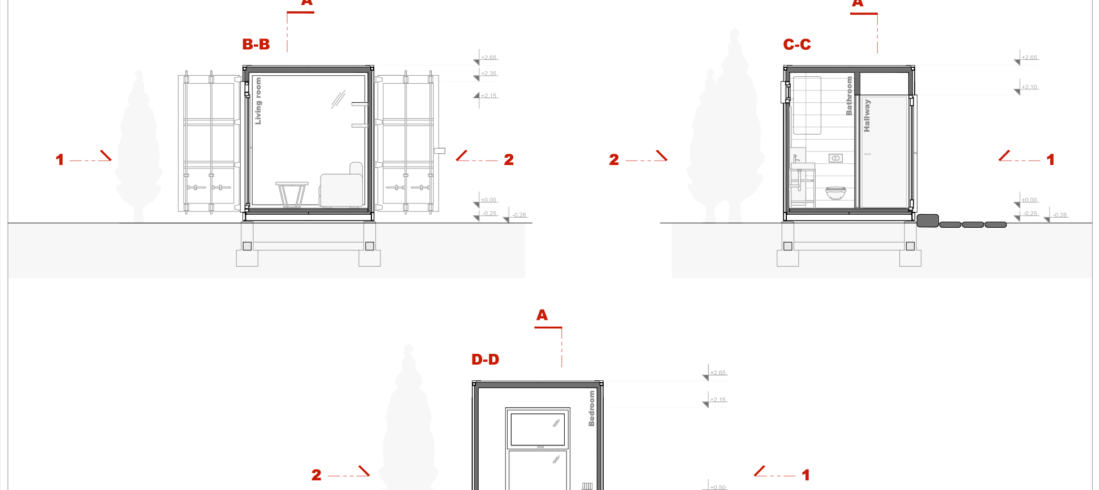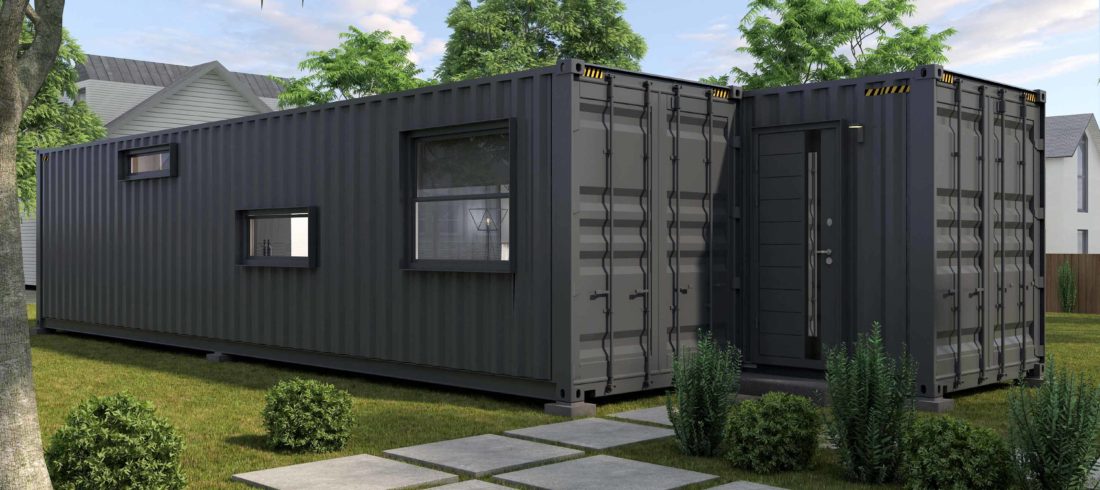From humble beginnings as global cargo carriers, shipping containers have been undergoing a fairly radical reinvention in recent years. Made of durable steel and easily customised, their versatility has seen them enjoying a new lease of life as all manner of things, from housing and holiday homes, to offices and restaurants.
Opportunity is rife in this field. Their potential is so great that exciting new uses for shipping containers seem to spring up on a near daily basis.
A developing trend towards a simpler, more eco-friendly lifestyle has made upcycled shipping containers a genuinely intriguing option for people of all walks of life around the world. After all, who wouldn’t want to start again closer to nature, or finally realise the long-term goal of starting their own cafe? Whatever your ambitions are for the future, shipping containers could be the radical alternative that helps bring your dreams to life.
But, before you race away and put down a deposit on your one-way-ticket to the good life, let’s first consider the practical side of owning a shipping container.
Is Planning Permission Needed for Shipping Containers?
Unfortunately, there isn’t a simple answer to the question of whether planning permission is needed for shipping containers. Essentially, they’re classed as temporary structures, which tends to rule out the need for permission. However, much will depend on how they’re being used.
Using a shipping container as a permanent home could change its definition as temporary, in which case you would need planning permission. Likewise, if your container took up over half of your property’s available land, this would also need to be agreed by your local council. Similarly, if you were using a repurposed container as a restaurant or cafe, you would need planning permission to stay in the same spot for over 28 days.
Ultimately, most people manage to get by without planning permission, so it generally isn’t needed. However, with planning regulations changing from one area to another, it’s always worth checking with your local planning office before settling into your new life.
For more information on this topic, check out our blog here.
Shipping Containers on Private Land: How Does it Work?
If you’re considering using a shipping container on private land, there are a few things to consider. While using one container to extend your existing space is fine (as long as it uses less than half of your land), projects consisting of multiple containers will likely need permission. Generally it’s best to check with your Local Planning Authority (LPA) first.
The main thing to consider is that, no matter how they’re used, shipping containers are seen as being temporary structures. This means that whether they’re being used as gyms or garages, they’re not expected to be used in the same way as traditional bricks and mortar properties. However, it can be slightly more complicated than just saying that shipping containers don’t need planning permission if they’re only used temporarily.
The truth is that even a single container on private land might require planning permission in certain circumstances. For instance, if you live in an Area of Outstanding Natural Beauty, pre-approval will almost definitely be needed. Similarly, if your shipping container home restricts a neighbour’s views or limits natural light then permission might again be needed.
Ultimately, in the vast majority of cases, your shipping container probably won’t need permission and you’ll be able to enjoy its many benefits straight away. However, a ‘better safe than sorry’ approach is always advisable. So, if you’re on the cusp of joining the shipping container revolution, it’s best to check with your LPA before making that order.
Can I Put Shipping Containers on Agricultural Land?
Shipping containers can serve lots of useful purposes on agricultural land. Their durability makes them ideal dry storage space for machinery, tools and farming equipment. Additionally, when used as shipping container farms, they also make an excellent controlled environment for indoor crops. However, their usage should be limited to temporary farming structures, and not as permanent buildings.
While it’s widely agreed that putting a shipping container on farmland is absolutely fine and won’t need planning permission, there are a few exceptions that are worth considering:
- Permanent structures: The shipping container must be transportable to avoid being classed as a permanent structure. This means that using a container as a field shelter, barn, or other fixed outdoor building would require planning permission.
- Farmland campsites: Shipping containers are basically classed as caravans in UK law. Therefore, you can keep up to three containers on a farmland ‘campsite’ for a maximum of 28 days a year. Anything longer than that would require planning permission.
- Permanent living space: Using a shipping container as permanent living space could change the farm’s classification from agricultural to residential. If you intend to use your container as long-term living space, you’ll need to get planning permission first.
It’s also worth checking with your LPA if your farm is in an area of outstanding natural beauty or situated close to listed buildings. However, in the vast majority of cases, a shipping container should prove to be versatile and long-lasting additional space that won’t need permission and can be used for decades to come.
Practical Steps Before Joining the Off Grid Dream
It’s not difficult to understand the broad appeal of shipping containers. Their versatility, durability and moveability has seen them being used in innovative new ways as holiday homes, restaurants, bars, and much more. It gives the exciting impression that we’re still only just scratching at the surface of what they can do.
Despite their seemingly endless selling points, we strongly recommend that you do a bit of research before taking the plunge and making an order. Yes, they’re generally classed as temporary structures and no, that doesn’t usually mean you’ll need planning permission to put one on your land. But regulations change from one area to another, so you should definitely check with your local authority first.
Once you’ve got that peace of mind, you can then start making plans for ways to use your container. You’ll be all set to experience the wonders of the Live Off Grid lifestyle.
For more information please contact us at hello@liveoffgrid.co.uk today.









